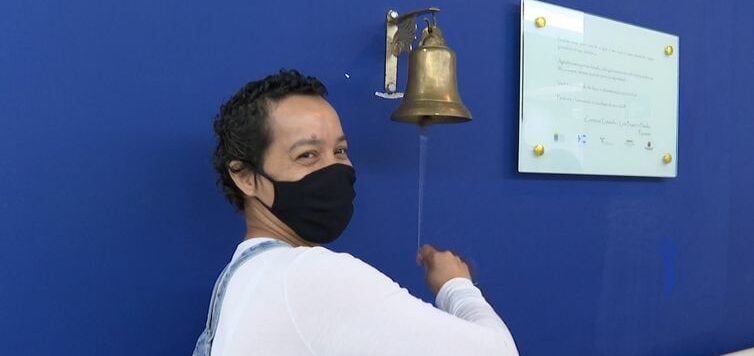As stipulated by current Brazilian legislation, cancer patients treated by the SUS must have access to treatment within a maximum of 60 days. However, a decade after the approval of the rule, thousands of people on SUS waiting lists still suffer from the late start of treatments, with consequent damage to quality of life and increased mortality.
ADVERTISING
What MPF action requires
To guarantee the rights of SUS users, under the terms of Law No. 12.732/2012, the MPF requires the Union to adopt, in 90 days, the measures to ensure that reactivated the treatment module Siscan or establish another reliable and compatible system, allowing adequate recording of data from patients diagnosed with cancer. OEstate of São Paulo will also have the same deadline to impose control and transparency on SUS waiting lists, whether through the Health Service Offers Regulation Center (Cross) or another system, guaranteeing priority for cancer patients in consultations, exams, surgeries, chemotherapy and radiotherapy. Therefore, defendants must comply with the deadlines established by law, ensuring that, in cases of malignant neoplasms, diagnosis occurs within 30 days and treatment is started within 60 days or less, depending on the therapeutic need of the case.
The action also requires that the names of all users are identified and informed of the SUS who, since the entry into force of Law No. 12.732/2012, died with a diagnosis of cancer after a delay in starting treatment.

For each of these patients, the MPF requests that the defendants be ordered to pay compensation for collective moral damages in an amount of no less than R$100. Compensation of at least R$50 is also required for each SUS user who did not have access to cancer therapy within a maximum period of 60 days. Finally, the action asks the Union and the State of São Paulo to pay at least R$10 million if they are unable to identify all cancer patients whose rights to treatment were disrespected.
Diagnosis
The MPF also requires that, in suspected cases of cancer, exams for a complete diagnosis be carried out within 30 days, as determined by law. Defendants in the action, the Union and the State of São Paulo must track SUS users whose wait for such exams and the start of treatment has exceeded the legal deadlines, adopting concrete measures to solve the problem.
According to data provided by the state Department of Health, in 2019, 18,6% of cancer patients in São Paulo (equivalent to 18.475 people) waited more than two months between diagnosis and the start of therapy.
In the case of some neoplasms, such as prostate and cervical tumors, the rate reached 46% and 44% of patients, respectively. The data, however, are partial and reveal another problem, in addition to the clear failure to comply with the deadlines set out in Law No. 12.732/2012: the registration and monitoring of cancer cases in Brazil have not been carried out correctly, due to the absence of a official tool for recording information.
ADVERTISING
Weaknesses in data collection
Currently, Siscan – Cancer Information System, from the Ministry of Health –, which should be fed by SUS services across the country with data on cancer patients, has not been widely used. The system's treatment module, which was intended precisely to capture data on therapy time, was disabled due to inconsistencies. As a result, in 2019, for example, the lack of information about treatment covered 45,22% of cancer patients in the State of São Paulo (around 44.939 people).
That same year, the National Cancer Institute (INCA) created the Oncology Panel, which also presents problems. Is that, despite being an unofficial system, it is the only made available by the Ministry of Health to evaluate the interval between cancer diagnosis and the start of treatment.
“Consequently, there is no way for the department to determine the real situation of compliance with the '60-day law' in the national territory, what is the repressed demand, what reasons generate such demand and what measures should be adopted”, warns Public Prosecutor Pedro Machado, author of the MPF action.
ADVERTISING
Investigations reveal the failure of public managers to obtain reliable data which would make it possible to assess whether the rights of SUS users have been respected, as well as determine responsibility in cases of non-compliance with legal deadlines.
“It is evident that this calamitous situation of extreme delay and lack of data in hospital records on cancer has a direct impact on the quality of care provided to patients, as well as on the assessment of the effectiveness of diagnosis and treatment, on hospital planning, on the correct sizing and provision of vacancies diagnostic tests and treatments, directing research, developing public health programs and monitoring health policies aimed at preventing and treating cancer. In short, they directly impact the lives or deaths of thousands of people every year”, highlights Machado.
Source: Communication Advisory – Federal Public Ministry in São Paulo
ADVERTISING





